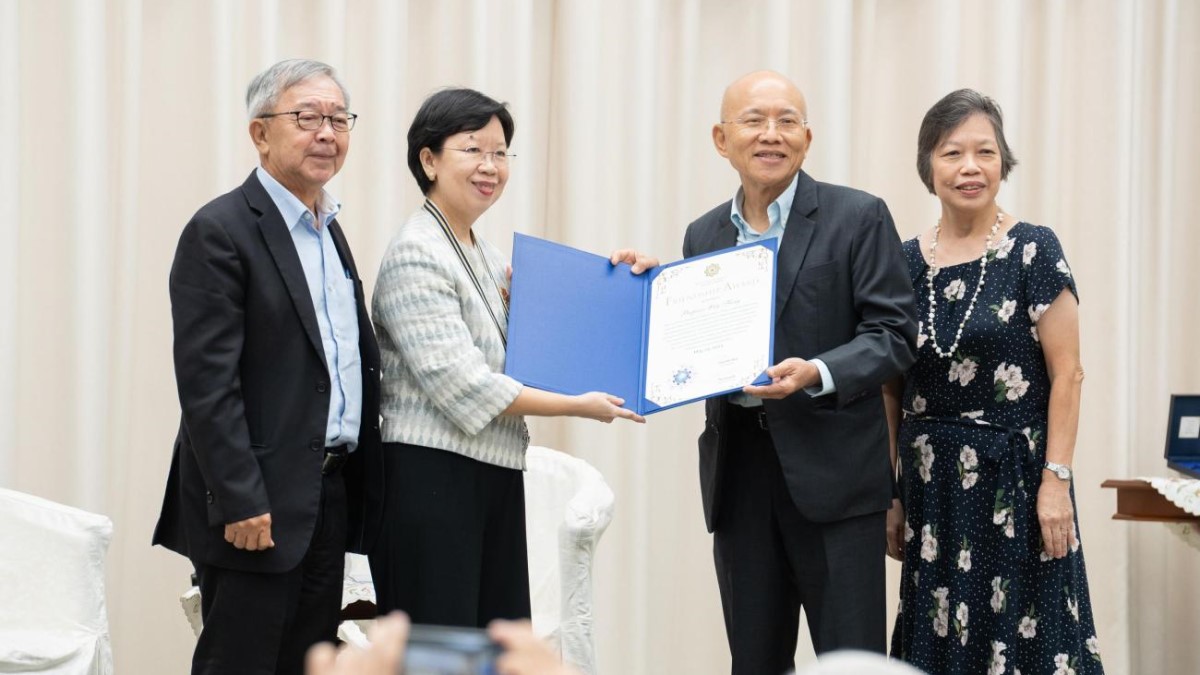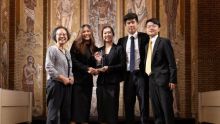
Prof Kong’s understanding and support of the mission and objectives of the SGS association were highlighted by SGS Chairperson Chan Mei Wah, in her opening address. Mdm Chan also touched on SMU’s established collaborations with SGS, such as the SGS-Ikeda Peace Award, which is given to students who have made significant contributions to either the University or the community. Another example of the collaboration between the two organisations is the lecture series commissioned to SMU’s College of Integrative Studies, which demonstrates Soka’s commitment to inter-cultural, inter-civilisational and inter-disciplinary dialogues.
Contention over space
Keeping dialogue going was a major theme of the SGS Peace Lecture delivered by Prof Kong. Titled ‘Standing on Common Ground – Space and Community in Singapore’, Prof Kong shared her insights as a trained geographer whose work has delved into the ways that the spaces we occupy can help us understand the dimensions of competition in Singapore.
Dividing ‘space’ into physical, virtual, and psychological spaces, Prof Kong raised questions about accessibility and ownership within these, calling on the audience to think about whether spaces can belong to or be deemed exclusive to a group, and how rights of access or ownership are then expressed. Other questions raised include whether such spaces can be shared amicably, and how inter- and intra-group relations are impacted by rights, perceived or otherwise.
Prof Kong illustrated her points with examples of conflicts over space in both Singapore’s history and everyday life. “You may recall how the redevelopment of Bukit Brown [cemetery] was a subject of heated contention,” she said, as one of the examples.
On the virtual front, Prof Kong elaborated on the widening digital divide between seniors and the younger generations that limits access based on how technologically savvy a person was; this creates a phenomenon she dubbed “digital left-behinds”. Touching on psychological space, one of the most easily relatable examples for Singaporeans would be the potential for social tension emerging due to migration, compounded by perceptions of scarcity in housing, jobs and other such resources.
Finding common ground
Addressing these, Prof Kong called on listeners to expand the common ground and mitigate such conflicts, stating that opportunities must be created to help people from different communities and socio-economic status to thrive.
“At the governmental level, redistributive and inclusive budget policies have been implemented to mitigate the distance caused by income and social inequalities,” she said, elaborating on other instruments such as SkillsFuture and the Progressive Wage Model. But we should not just leave it to the government, she said, emphasising that grassroots and community initiatives are necessary to complement and expand on the impact of legislature.
At the end of the day, fostering a culture of respect and dialogue in both physical and virtual spaces are key to finding common ground in land-scarce Singapore, she concluded.
“A Singapore that stands on common ground is certainly not one where disparate groups jostle to demarcate their space or stake their place in society. Rather, it is a community that sees possibilities in shared spaces, adopting time-honoured values of respect and solidarity.”
Following Prof Kong’s lecture was a question-and-answer session, moderated by Professor Leo Tan, Chairman of the Garden City Fund, and adviser to the Lee Kong Chian Natural History Museum at NUS. Prof Kong addressed a range of questions from the audience on how social harmony and community connections could be better cultivated, and how Singapore should address the increasing wave of mental health concerns being surfaced.
Drawing the event to a close with his concluding remarks, SGS General Director Mr Tay Eng Kiat commended Prof Kong for “rightly pointing out the urgent need to create a culture of respect and dialogue” and encouraged participants to contribute to the betterment of our shared common space in Singapore.
See also: Professor Lily Kong conferred the esteemed Soka Gakkai Singapore Friendship Award.


